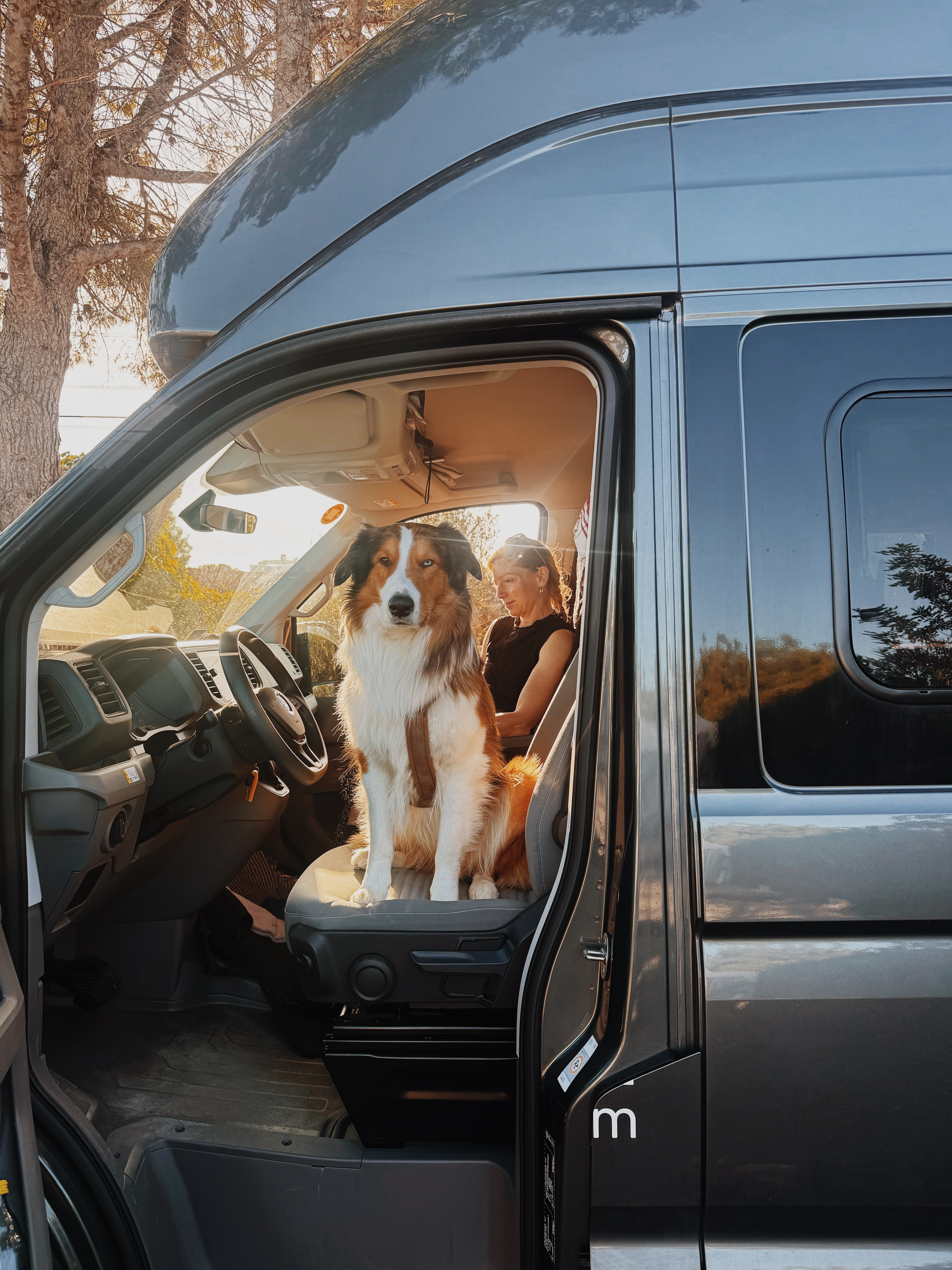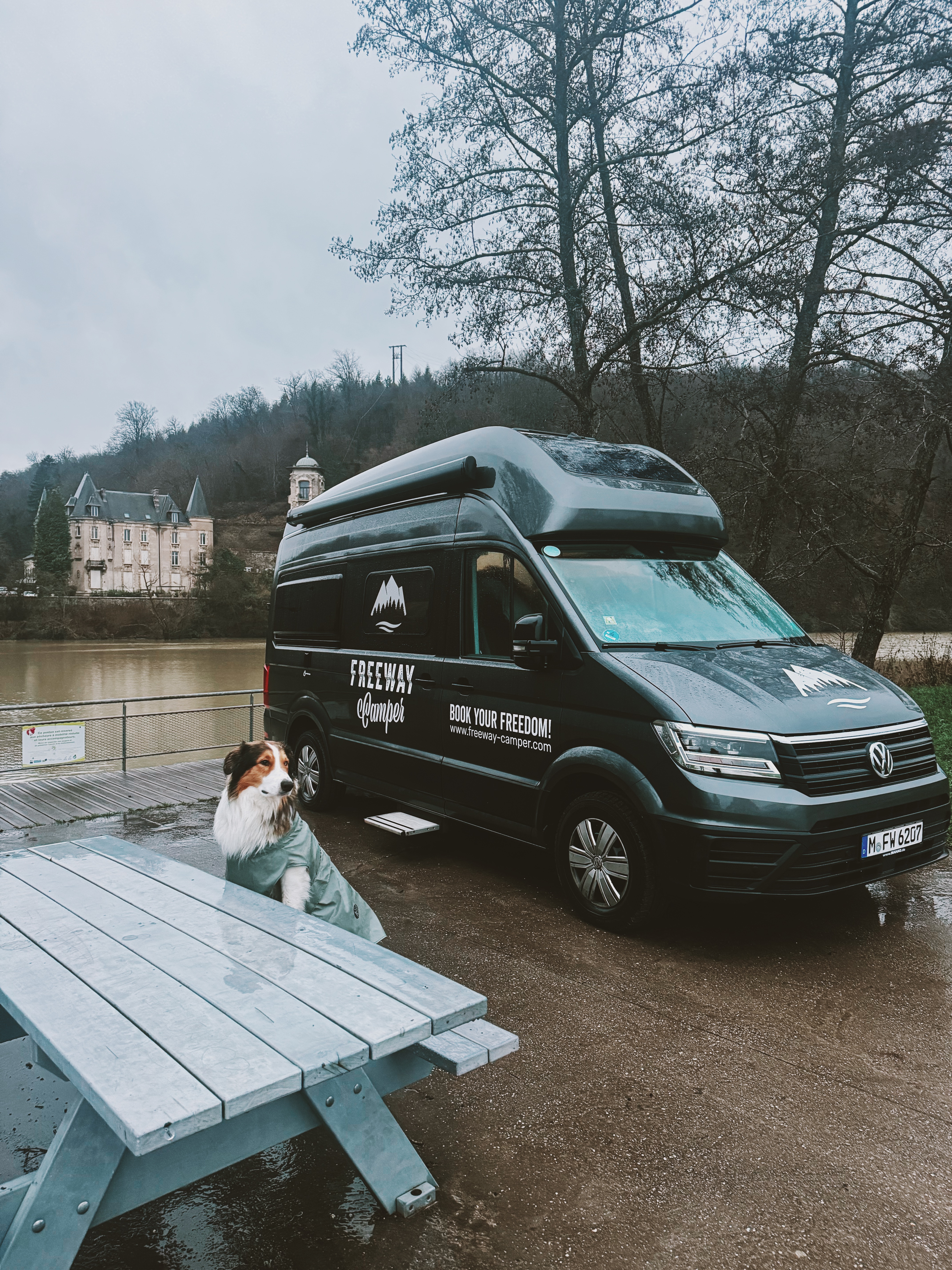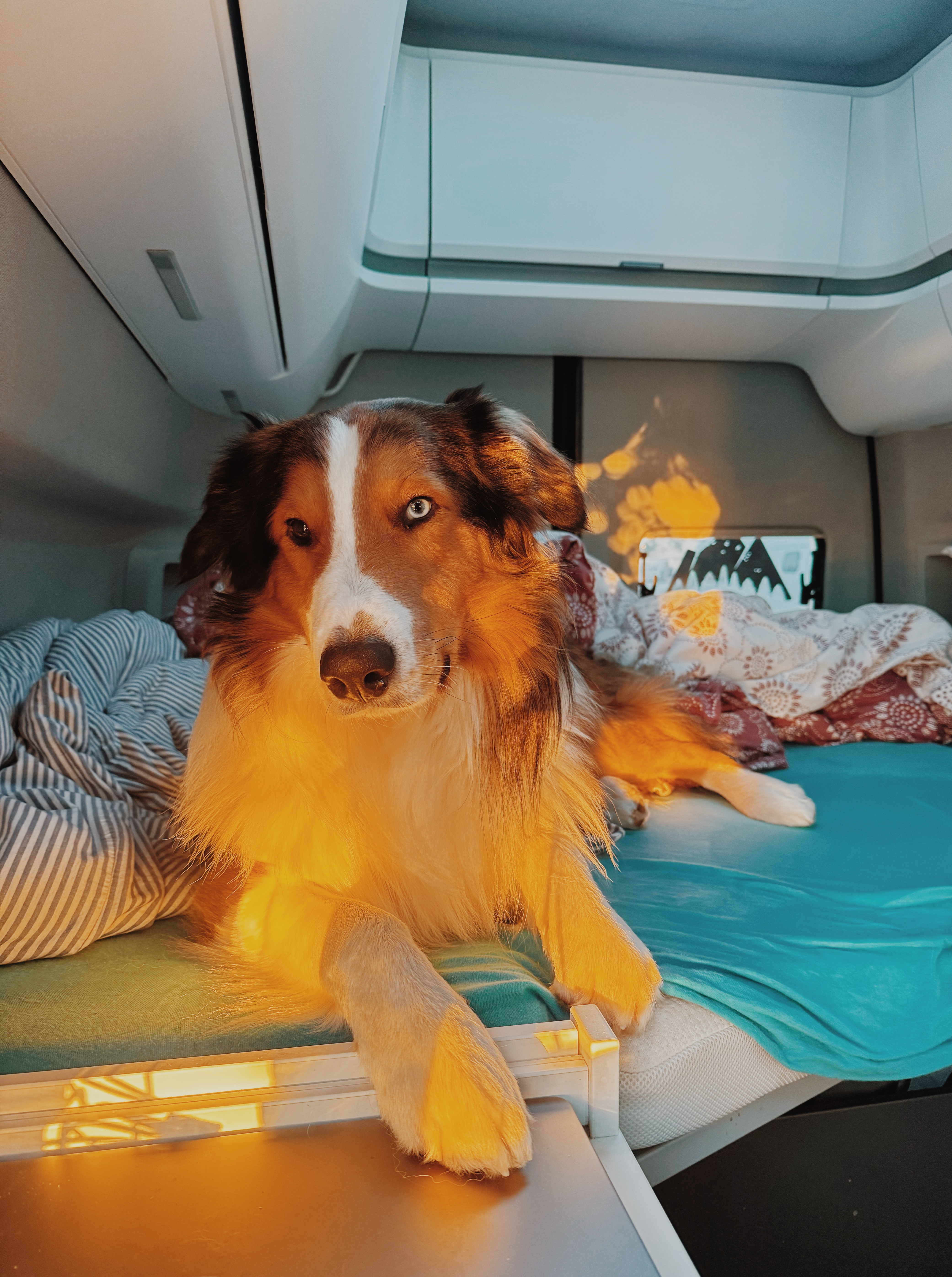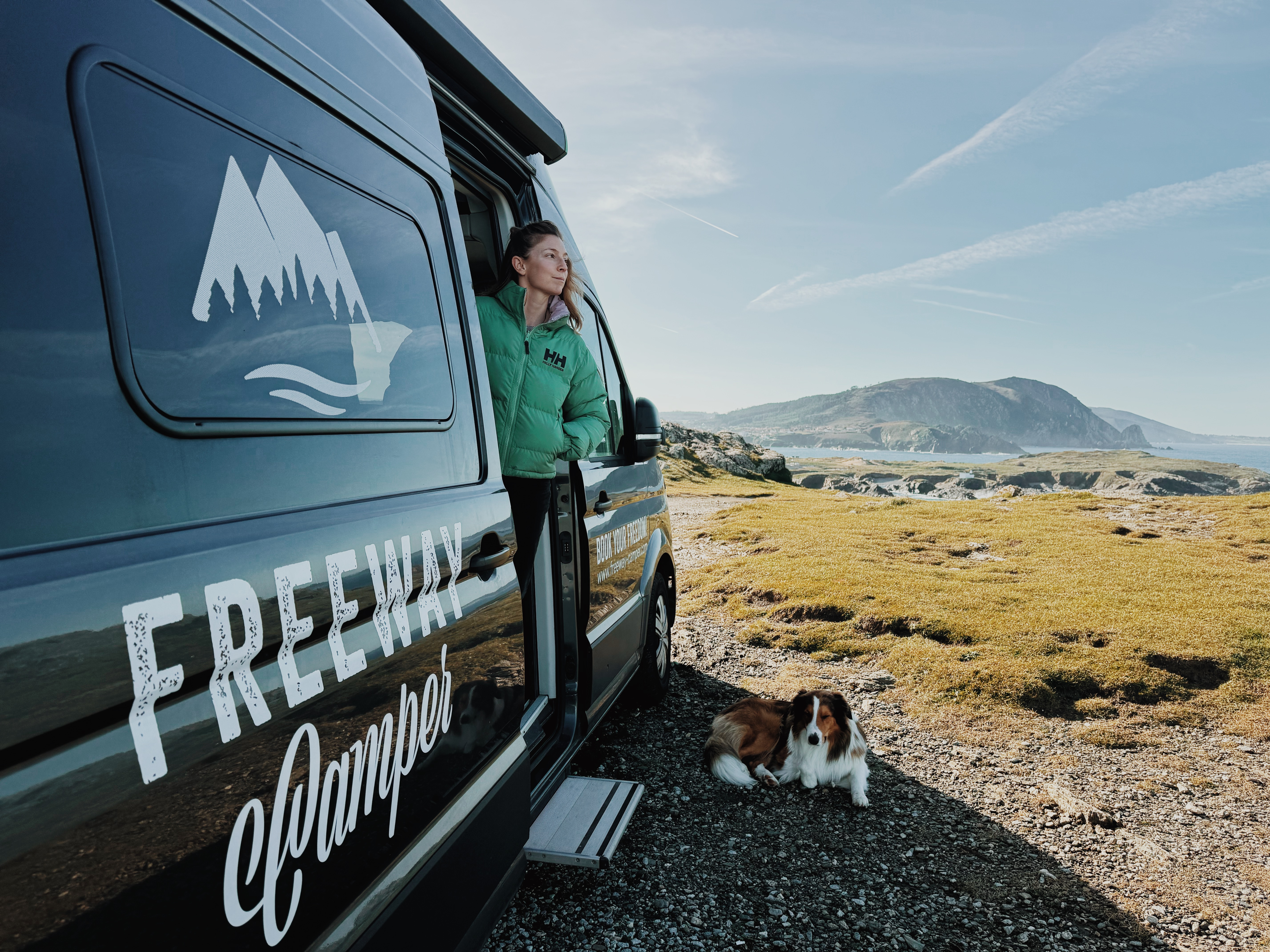
Camping With Your Dog - What You Need to Know
Updated at: 09/01/2026
Reading time: 4 minutes
You wake to a cold nose at your hand as the morning sun comes through the window. You pop the kettle on, and your dog waits by the door for that first morning walk through wet grass. Back inside, you set two bowls down and a towel for damp paws; they curl by your feet while you have a think about what to do today. Last week, you worried about rental rules and long drives. Today, you chose a van that welcomes dogs and a site with easy walks. That’s camping with dog at its best. This guide shows how to find a dog-friendly rental on CamperDays, how to travel safely, how to choose the right campsite, and what to pack. You’ll find a simple packing list at the end to use before you leave.
1. Find a Dog-Friendly Motorhome

Start your search on CamperDays and switch on the dog-friendly motorhome hire filter. The results now show rental partners that welcome pets. Open a few vans and read the pet rules in the listing.
You often see phrases like motorhome hire pets allowed or pet friendly motorhome hire. The rules can differ by hire company, so take a minute to check them.
If a point feels vague, ask the question before you pay. A quick message saves any hassle later on. This simple check makes camping with dog easier from day one.
Look for clear terms before you book:
Pet limit by size or number
Where the dog can sit and sleep
Cleaning expectations after return
Extra cleaning fee (most brands add one and show it during checkout)
2. Safe Travel in the Vehicle
Secure your dog so the drive stays calm and safe. That’s the base for happy camping with dog.
Choose a setup
Use a crash-tested harness that clips to a seatbelt loop or ISOFIX adaptor.
Or fix a rigid travel crate to the load points. Add a non-slip mat so paws don’t slide.
For small dogs, a soft crate works only if you strap it down firmly.
Set up the cabin
Keep the front seat clear. Dogs ride in the back.
Keep windows high enough to stop heads leaning out.
Carry water and a small bowl. Offer short sips at stops.
Open the windows when you are parked up.
Before you pull away
Lead on.
Harness clipped.
Crate latched.
Bowl stowed.
Doors shut.
Loose toys put away.
3. Pick a Dog-friendly Campsite

The right campsite makes days easier for both of you. Think about walks, noise, and space before you book. That choice shapes how camping with dog feels once you park up.
What to look for
A clear pet policy on the site page.
On-lead rules and quiet hours that fit your dog.
Walks straight from the gate or trails close by.
Waste bins placed around the park and water taps you can reach.
Shaded pitches or hardstanding that stays dry after rain.
A fenced exercise area if your dog needs a run.
How to search
Use filters on campsite finders and booking sites, then read the latest reviews. Scan for notes on noise, loose dogs, or busy paths. If a rule matters to you, send a short email and ask. A quick reply beats guessing at arrival.
Set yourself up for calmer evenings too. Ask about pitch layout, distance to paths, and any dog walk on site. A little context helps you pick a spot that suits your routine.
4. Campsite Etiquette With a Dog

Good manners keep the park relaxed for everyone. A few thoughtful habits make life easier for you, your neighbours, and the next dog that rolls in.
Keep the lead handy, as most parks expect dogs to stay close by. Cleaning up straight away is a given, and having a few spare bags in your pocket saves awkward moments.
Set bowls by your step so they’re out of the way, not in the middle of the path. Quiet hours call for calm play. Save the ball throwing for the next morning.
Hot days are tough on dogs, so make sure they’re never shut inside while the sun is beating down. If barking kicks off, a short wander or closing the blinds usually helps.
And if you plan to set up a tie-out, a quick chat with your neighbours keeps everyone happy.
5. Packing list for your dog
Fly-and-hire trips keep space tight, so pack small and useful.
Lead and spare lead with an ID tag. Add your phone number and country code.
Harness that fits the van setup. Pack a seatbelt clip or crate straps.
Collapsible bowls. A travel bottle for quick stops.
Food measured for the trip, plus a little extra. Treats for training breaks.
Poo bags. A small towel for wet paws. A few wipes for the floor.
Bed pad or a blanket that smells like home. It helps most dogs settle.
Tick remover and simple first-aid bits. Bring any meds in their own box.
A clip-on light or high-vis band for night walks so you can see them at the pitch
Ready to Book Your Next Adventure With Your Dog?
Search on CamperDays and switch on the dog-friendly motorhome hire filter. You’ll see vans that accept pets, often marked pet-friendly motorhome hire or motorhome hire pets allowed. Compare prices side by side and check what’s included at a glance.
Do you need crate space confirmed or tie-down points checked? Our team speaks to the rental company for you, staying with you before and during your booking and travel. Start planning camping with dog the easy way.





